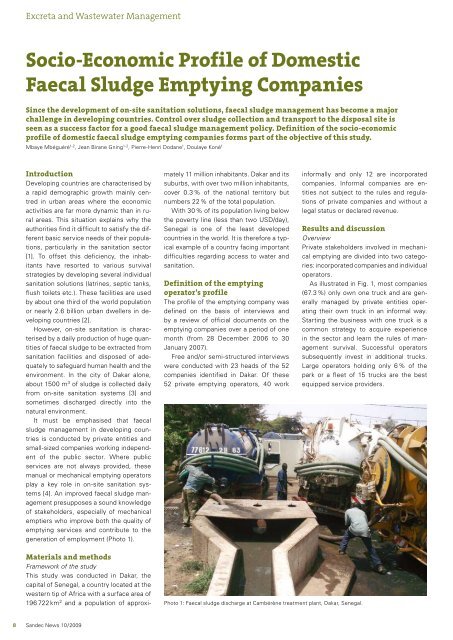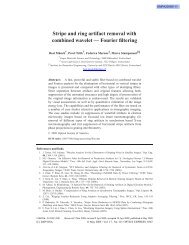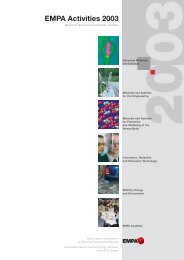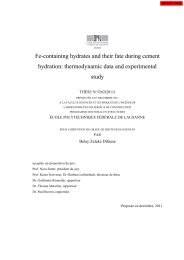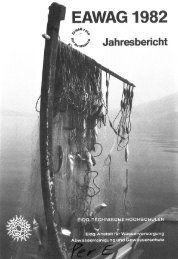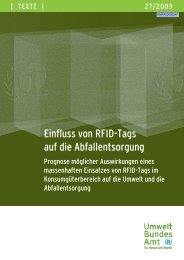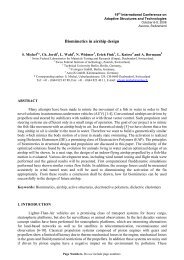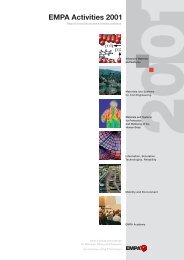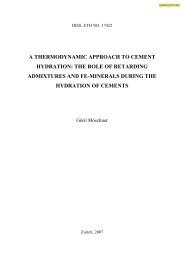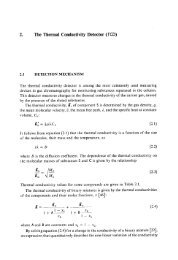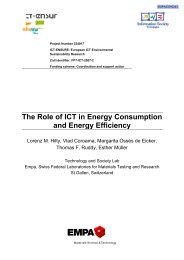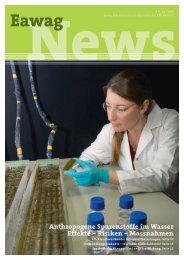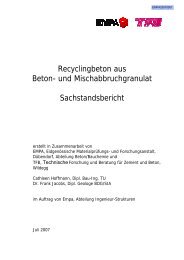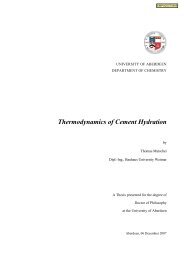Sandec - Eawag
Sandec - Eawag
Sandec - Eawag
You also want an ePaper? Increase the reach of your titles
YUMPU automatically turns print PDFs into web optimized ePapers that Google loves.
Excreta and Wastewater Management<br />
Socio-Economic Profile of Domestic<br />
Faecal Sludge Emptying Companies<br />
Since the development of on-site sanitation solutions, faecal sludge management has become a major<br />
challenge in developing countries. Control over sludge collection and transport to the disposal site is<br />
seen as a success factor for a good faecal sludge management policy. Definition of the socio-economic<br />
profile of domestic faecal sludge emptying companies forms part of the objective of this study.<br />
Mbaye Mbéguéré 1-2 , Jean Birane Gning 1-2 , Pierre-Henri Dodane 1 , Doulaye Koné 1<br />
Introduction<br />
Developing countries are characterised by<br />
a rapid demographic growth mainly centred<br />
in urban areas where the economic<br />
activities are far more dynamic than in rural<br />
areas. This situation explains why the<br />
authorities find it difficult to satisfy the different<br />
basic service needs of their populations,<br />
particularly in the sanitation sector<br />
[1]. To offset this deficiency, the inhabitants<br />
have resorted to various survival<br />
strategies by developing several individual<br />
sanitation solutions (latrines, septic tanks,<br />
flush toilets etc.). These facilities are used<br />
by about one third of the world population<br />
or nearly 2.6 billion urban dwellers in developing<br />
countries [2].<br />
However, on-site sanitation is characterised<br />
by a daily production of huge quantities<br />
of faecal sludge to be extracted from<br />
sanitation facilities and disposed of adequately<br />
to safeguard human health and the<br />
environment. In the city of Dakar alone,<br />
about 1500 m 3 of sludge is collected daily<br />
from on-site sanitation systems [3] and<br />
sometimes discharged directly into the<br />
natural environment.<br />
It must be emphasised that faecal<br />
sludge management in developing countries<br />
is conducted by private entities and<br />
small-sized companies working independent<br />
of the public sector. Where public<br />
services are not always provided, these<br />
manual or mechanical emptying operators<br />
play a key role in on-site sanitation systems<br />
[4]. An improved faecal sludge management<br />
presupposes a sound knowledge<br />
of stakeholders, especially of mechanical<br />
emptiers who improve both the quality of<br />
emptying services and contribute to the<br />
generation of employment (Photo 1).<br />
Materials and methods<br />
Framework of the study<br />
This study was conducted in Dakar, the<br />
capital of Senegal, a country located at the<br />
western tip of Africa with a surface area of<br />
196 722 km 2 and a population of approxi-<br />
<strong>Sandec</strong> News 10/2009<br />
mately 11 million inhabitants. Dakar and its<br />
suburbs, with over two million inhabitants,<br />
cover 0.3 % of the national territory but<br />
numbers 22 % of the total population.<br />
With 30 % of its population living below<br />
the poverty line (less than two USD/day),<br />
Senegal is one of the least developed<br />
countries in the world. It is therefore a typical<br />
example of a country facing important<br />
difficulties regarding access to water and<br />
sanitation.<br />
Definition of the emptying<br />
operator’s profile<br />
The profile of the emptying company was<br />
defined on the basis of interviews and<br />
by a review of official documents on the<br />
emptying companies over a period of one<br />
month (from 28 December 2006 to 30<br />
January 2007).<br />
Free and/or semi-structured interviews<br />
were conducted with 23 heads of the 52<br />
companies identified in Dakar. Of these<br />
52 private emptying operators, 40 work<br />
Photo 1: Faecal sludge discharge at Cambérène treatment plant, Dakar, Senegal.<br />
informally and only 12 are incorporated<br />
companies. Informal companies are entities<br />
not subject to the rules and regulations<br />
of private companies and without a<br />
legal status or declared revenue.<br />
Results and discussion<br />
Overview<br />
Private stakeholders involved in mechanical<br />
emptying are divided into two categories:<br />
incorporated companies and individual<br />
operators.<br />
As illustrated in Fig. 1, most companies<br />
(67.3 %) only own one truck and are generally<br />
managed by private entities operating<br />
their own truck in an informal way.<br />
Starting the business with one truck is a<br />
common strategy to acquire experience<br />
in the sector and learn the rules of management<br />
survival. Successful operators<br />
subsequently invest in additional trucks.<br />
Large operators holding only 6 % of the<br />
park or a fleet of 15 trucks are the best<br />
equipped service providers.


